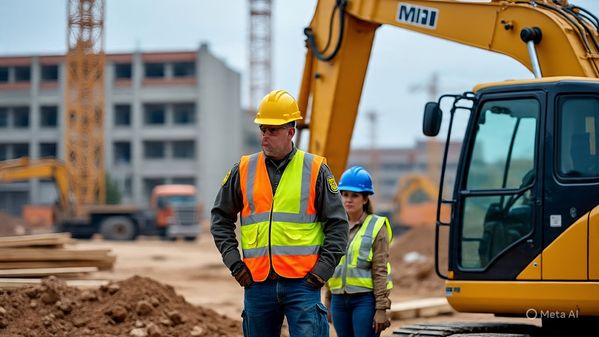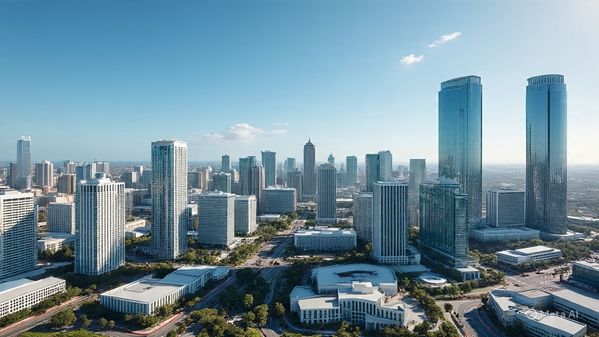FHP Troopers at College Town Construction Site: Uncovering the Layers Behind the Headlines
FHP Troopers at College Town Construction Site In the heart of Tallahassee’s bustling College Town, a construction site has become more than just a development zone—it’s turned into a focal point of curiosity, concern, and speculation. When Florida Highway Patrol (FHP) troopers were spotted patrolling and engaging with workers at this prominent construction site, many began to wonder: Why were state troopers involved in what appeared to be a local civil matter? What does this mean for local laborers, the project’s future, and the community surrounding it?
This post will break down the full picture—from legal nuances to labor issues, and from political angles to community reactions—giving you a well-rounded, human-centric understanding of what’s really going on at the College Town construction site and why FHP troopers have entered the equation.
What Sparked FHP Troopers’ Presence at the College Town Construction Site?
In early 2025, several construction workers and nearby residents noticed an unusual sight—Florida Highway Patrol units stationed at a private development site in College Town, just blocks away from Florida State University’s campus. Unlike standard security personnel, these weren’t off-duty cops moonlighting for a paycheck. These were on-duty, uniformed troopers patrolling and occasionally speaking with laborers and foremen.
So what prompted this?
A Dispute That Escalated Beyond City Limits
At the core of this issue lies a labor dispute. Subcontractors hired for various stages of the project—ranging from concrete pouring to electrical work—allegedly voiced concerns over unpaid wages and unsafe working conditions. Several workers claimed they were threatened with dismissal or police action if they continued to raise concerns.
While the Department of Business and Professional Regulation (DBPR) typically oversees such labor grievances, the developers reportedly contacted state-level authorities, citing safety concerns and claiming worker unrest had reached the point of threatening public order. That’s when FHP entered the scene.
Legal Loopholes and Executive Influence
The use of FHP troopers on a civilian construction site may sound overreaching—and to many legal experts, it is. However, Florida’s evolving executive orders allow for deployment of state law enforcement officers under vaguely defined “public safety” protocols, especially if infrastructure projects are deemed critical to economic growth.
This specific construction site, part of a high-value mixed-use development aimed at student housing and retail expansion, qualifies as such under Governor-endorsed urban revitalization initiatives. It’s not confirmed whether direct intervention was requested by the governor’s office, but insiders claim the state’s recent prioritization of “economic continuity” played a major role.
Community Reactions: From Support to Suspicion
The public’s response to the FHP troopers’ presence has been mixed—some see it as protective, others view it as authoritarian overreach.
Local Businesses Speak Up
Store owners along Gaines Street—many of whom have awaited the foot traffic that new apartments and retail stores could bring—have generally welcomed the increased security. “Construction has been chaotic for months,” says Myra Flores, who owns a bookstore and café just across the site. “If FHP helps keep it moving, I’m all for it.”
But some aren’t as optimistic.
Student and Worker Advocacy Groups Cry Foul
Student-led organizations from FSU and Florida A&M, including groups like Students for Justice in Labor and Tallahassee Solidarity Network, have protested what they call “state-sanctioned intimidation tactics.” On multiple occasions, they’ve organized demonstrations on the sidewalk outside the fenced site, holding up signs like “Troopers Aren’t Union-Busters” and “Protect Workers, Not Developers.”
Several advocacy groups have filed public records requests to understand the basis for the FHP deployment, raising concerns that the move sets a dangerous precedent where labor disputes are handled not through negotiation or arbitration but state policing.
Behind the Curtain: The Developers and Political Ties
The development group behind the College Town construction site—Capital Vista Ventures LLC—has a well-documented history of securing lucrative municipal contracts. Their lead investor, according to public campaign finance records, has contributed over $200,000 to various political campaigns across the state, including to pro-business legislative PACs.
Though legal, these donations have drawn suspicion, particularly since this project received fast-tracked permitting and tax incentives under the state’s Strategic Urban Enhancement Program. Critics argue that the FHP troopers’ involvement is more about political favor than public safety.
What This Means for Florida’s Labor Landscape
This case might seem isolated, but it could signal a broader shift in how Florida handles labor relations in the construction industry.
Erosion of Union Influence?
Unions across Florida, including the Southeastern Regional Labor Council, have expressed concerns that state resources are being misused to suppress collective bargaining and whistleblower complaints. If state troopers can be used to enforce order on private worksites during labor unrest, unions fear it could dilute the power of strikes and weaken labor protections across sectors.
Impact on Worker Safety
According to a 2025 survey by the Florida Labor Advocacy Coalition, over 37% of workers in construction zones across the state report feeling unsafe speaking up about workplace hazards. That number is up from 22% in 2023. Experts believe high-profile cases like the College Town construction site have contributed to a culture of fear.
Legal Precedent and Policy Reform
While no legal ruling has yet been handed down on the legality of FHP’s involvement, several Tallahassee-based civil rights attorneys are pushing for court reviews. If successful, these challenges could lead to clearer boundaries between state law enforcement and private enterprise disputes.
Table: Key Stakeholders and Their Roles
| Stakeholder | Role in the Situation | Current Stance |
|---|---|---|
| Florida Highway Patrol (FHP) | On-site presence and enforcement | Claiming safety concerns prompted involvement |
| Capital Vista Ventures LLC | Project developers | Declined to comment publicly |
| Workers/Subcontractors | Alleging unsafe conditions and wage disputes | Seeking legal and union representation |
| City of Tallahassee Officials | Oversight of development permits and safety enforcement | Silent amid ongoing investigations |
| Advocacy Groups & Students | Rallying support for workers and transparency | Calling for public records and FHP withdrawal |
| Legal Experts | Questioning constitutional legality of FHP’s deployment | Some preparing to file lawsuits |
Real-World Impact: One Worker’s Story
Miguel L., a 32-year-old welder originally from Panama City, says he was promised $25/hour on a short-term contract but received barely $16, with inconsistent hours and no protective gear for high-heat work. When he approached the site supervisor, he was told to “take it up with Tallahassee.” Days later, he was approached by FHP troopers and asked to show documentation, even though he had already been vetted by the staffing agency.
“They acted like I was a criminal,” Miguel says. “I just wanted my paycheck and a safe place to work.”
Moving Forward: What Needs to Happen Now?
To restore public trust and ensure worker safety, multiple steps need to be taken:
-
Independent Investigation
The Florida Department of Law Enforcement (FDLE) should conduct a third-party inquiry into how and why FHP troopers were deployed. -
Strengthened Whistleblower Protections
Workers should not fear police retaliation for reporting unsafe conditions or pay disputes. -
Legislative Clarity
Florida lawmakers must define clearer boundaries regarding the use of state law enforcement on private property during labor disputes. -
Public Transparency
The developers and state officials should disclose communications and agreements made that led to law enforcement engagement.
Conclusion: A Moment of Reckoning in the Sunshine State
The presence of FHP troopers at a college town construction site isn’t just a local curiosity—it’s a litmus test for Florida’s evolving power dynamics between state authority, private development, and everyday workers. It raises critical questions about who gets protected, whose voices are heard, and how far we’re willing to go for “progress.”
As of now, the project continues, the troopers remain, and the spotlight grows hotter.
But this story is far from over.
FAQs About the FHP Troopers at the College Town Construction Site
Q1: Is it legal for FHP troopers to be on a private construction site?
A: It’s legally murky. While Florida allows law enforcement to assist in matters of public safety, using FHP in labor disputes is unprecedented and likely to face legal challenges.
Q2: Are the workers unionized?
A: Most workers at the site are subcontracted and non-union. However, several labor organizations are now advocating for them and assisting with legal support.
Q3: Has the Governor’s office commented on this incident?
A: As of July 2025, no official statement has been made by the Governor’s office regarding FHP’s involvement.
Q4: What is being built at the College Town construction site?
A: It’s a multi-phase, mixed-use development including luxury student apartments, retail spaces, and restaurants, aimed at serving the Florida State University community.
Q5: Have there been any arrests or incidents on-site?
A: No arrests have been confirmed. However, some workers reported being threatened with removal or documentation checks, which has contributed to tensions.
Q6: What can community members do if they’re concerned?
A: Residents can contact local representatives, attend city commission meetings, and support labor advocacy groups pushing for transparency and legal reform.


![Swimsuit Edition [ABBB] - 1.20 21 Swimsuit Edition - Chapter](https://newzio.pro/wp-content/uploads/2025/07/AQN_u332c2tRFy_6zmICQjgeTpRyLz0oTYkJoZAwlw8OJZdfnCvwKawGC-HWhremQ33DTul7DJAR5q1zgH0Y2X59zraz-AleA5Ddx6HKSI-KGUJiB4FwDCM2e_UfRPAgFt7sa2KelpwXkczEnPTwbXyk1RSP.jpeg)


Leave a Reply